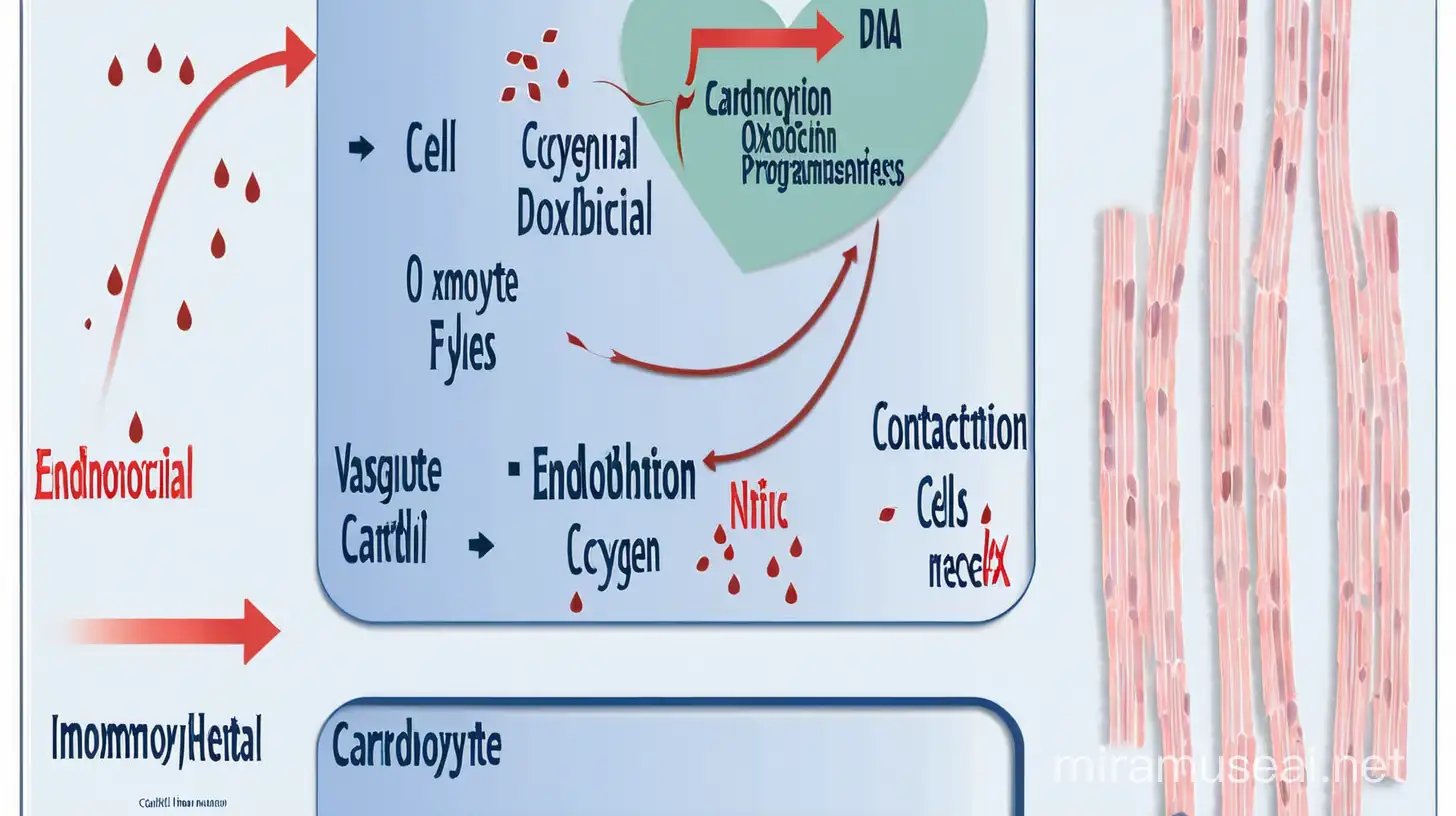DoxorubicinInduced Cardiotoxicity Endothelial Dysfunction and Cardiomyocyte Damage

AI Art Image Prompt
Prompt
Endothelial Cell Dysfunction: Doxorubicin can directly damage endothelial cells lining blood vessels within the heart, This damage disrupts the normal functioning of endothelial cells, leading to endothelial dysfunction, Endothelial dysfunction is characterized by impaired production of nitric oxide (NO), increased oxidative stress, inflammation, and reduced vasodilation capacity, This dysfunction contributes to impaired coronary blood flow regulation, increased vascular permeability, and altered angiogenesis within the myocardium, Cardiomyocyte Damage: Doxorubicin-induced cardiotoxicity primarily affects cardiomyocytes, the contractile cells of the heart, Doxorubicin enters cardiomyocytes and interferes with various cellular processes, including DNA damage, mitochondrial dysfunction, and oxidative stress, These disruptions lead to cardiomyocyte injury, apoptosis (programmed cell death), and ultimately, myocardial damage, Cardiomyocyte damage contributes to the development of cardiac dysfunction, such as impaired contractility and relaxation, and can progress to heart failure, Interactions: The interaction between endothelial cells and cardiomyocytes plays a significant role in the pathogenesis of doxorubicin-induced cardiotoxicity, Endothelial dysfunction can impair the supply of oxygen and nutrients to cardiomyocytes, exacerbating their vulnerability to doxorubicin-induced damage, Furthermore, damaged endothelial cells release various factors such as inflammatory cytokines, reactive oxygen species (ROS), and endothelin-1, which can directly affect cardiomyocyte function and viability, Conversely, injured cardiomyocytes release factors such as cardiac troponins, cytokines, and growth factors, which can further disrupt endothelial function and exacerbate vascular damage,
Choose Model: realistic
Aspect Ratio: 16:9
Related AI Images
Related Tags
AI Art Prompt Analyze
- Subject: Endothelial Dysfunction Endothelial dysfunction caused by doxorubicin involves impaired nitric oxide production, increased oxidative stress, and inflammation. This dysfunction disrupts normal blood vessel functioning and contributes to altered angiogenesis in the heart. Subject: Cardiomyocyte Damage Doxorubicin infiltrates cardiomyocytes, leading to DNA damage, mitochondrial dysfunction, and oxidative stress. These disruptions induce cardiomyocyte injury, apoptosis, and subsequent myocardial damage, resulting in impaired heart function. Subject: Interactions The interplay between damaged endothelial cells and cardiomyocytes exacerbates doxorubicin-induced cardiotoxicity. Endothelial dysfunction impairs oxygen and nutrient delivery to cardiomyocytes, while damaged cardiomyocytes release factors that further disrupt endothelial function, creating a vicious cycle of vascular damage and heart dysfunction.